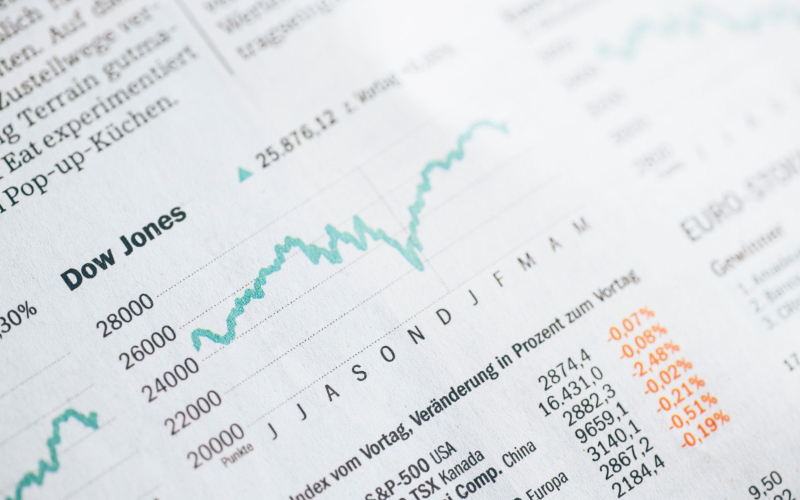9 Low-Risk Investments
Are you looking for a way to save up, but scared of the market declining? Here are some of my favorite low-risk investments.

Before I jump into the details, here are the 8 low-risk investments that I'll be covering:
- Bank savings accounts
- Certificate of Deposit (CDs)
- Treasury bonds
- Municipal bonds
- Money market accounts
- Low-risk mutual funds
- Low-risk index funds
- Annuities
- Real estate
When it comes to your hard-earned money, you want to keep as much of it as possible. This is why it's a good idea to keep some of your money in low risk investments. You never know when you might need a few thousand dollars to replace your vehicle or new roof for your house.
You need to keep your emergency savings in an investment that earns you a bit of money, but still protects the original amount you put in. You also need a place to safely save up for bigger ticket purchases that you plan to make within the next three to five years, like a down payment on a new home. You want to save up the money slowly, but you can't risk losing principle.
For longer term investing, most people can withstand a bit more risk. When your child is 10 and you know college is just 8 years away, you have time to weather the ups and downs of the market. So for that, investing in high risk investments are fine and you will be rewarded for your risk tolerance by getting better returns. The same goes for retirement. When you are 30 or 40 opting for high risk investments is fine, but as you get closer to retirement, moving some money into lower risk ones is a great idea.
Here are eight types of low risk investments for you to consider:
Bank Savings Accounts
You might remember the days when banks paid out whole number percentage interest rates as the norm. Today, you're lucky to get an interest rate that's above 1%. But interest is interest and something is better than nothing. You can shop around online to find banks that offer higher percentages. Then keep the bulk of your savings, like an emergency fund, there. You might be able to take advantage of sign-up bonus that banks sometimes offer, and get an extra bit of cash for moving your money to a different bank.
Certificates of Deposits
These investments, also referred to as CDs, offer a way to earn a higher amount of interest on your money. These offer better interest rates than a savings account, but with less flexibility. With a certificate of deposit, you are agreeing to leave the money in your account for a set length of time. In exchange for this, the bank will pay you a higher interest rate than on your regular savings account. This is because you must agree to a term that's anywhere from 3-months to 5-years. There are penalties for taking your money out early. You will never lose the principle, but it you do an early withdrawal, you will lose a part of the earnings on you original deposit. The longer the CD length is, the higher interest rate you'll get. Certificates of deposit are easy to open: you can do it at any bank, online or brick and mortar.
One way you can enjoy the higher rates, while still giving yourself access to the money periodically is to set up what's called a CD ladder. Let's say you have $12,000 you want to keep in a low risk investment. You don't like the idea of not being able to use that money for the next three years, but you do like the idea of earning 5% in a 3-year CD. To capitalize on this with a CD ladder, you'll put $4,000 in a one-year CD; $4,000 in a two-year CD; and $4,000 in a three-year CD. After the first year, you reinvest that $4,000 in another three-year CD, the next year you do the same thing. In the fourth year, you'll all your money spread between three 3-year CDs, with one maturing each year. Repeat this process every year. There's no limit to how simple or sophisticated you can make your CD ladder, so figure out what works best for you.
Treasury and Municipal Bonds
Treasury and municipal bonds are one of the safest investments as they are backed by the government. Municipal bonds are issued by your local government and are used as a way to raise funds for a taxpayer funded project that needs upfront capital. They issue the bonds, so they can get the cash needed to start the project. Generally the interest that you earn on these are exempt from state and local taxes.
The federal government issues treasury bonds, which are considered safer since there is the whole United States Government to back them up. They are very similar to municipal bonds, and sometimes have a tax advantage.
The biggest drawback to these low risk bonds is that you don't earn much more than a few percentage points in interest. Also, interest is usually paid twice a year. You can invest in bond funds in your 401k or IRA in order to get a more diverse investment portfolio while still benefiting from bonds.
Money Market Accounts
You might think of money market accounts as a cross between savings and checking accounts and certificates of deposit. You will have a bit less access to your money, but earn higher interest rates than your bank's normal savings account. When you open a money market account, you'll get check writing privileges. There will be a limit to how many withdrawals you can make per month. This is a great place to keep your emergency fund, or a holding place for a big-ticket time that you're saving up to buy, like a new washer and dryer or a bathroom remodel. You still keep easy access to the money, but because you are restricted in your withdrawals, you will not turn to it when you need some quick cash.
Low-Risk Mutual and Index Funds
While investing in single stocks, like Apple and Coca-Cola, can be risky, you can take advantage of the stock market by investing in funds. Both mutual funds and index funds are collections of various stocks, bundled into a single investment product. By opting for a fund, you aren't tied down to individual funds. Index funds that track the top 500 companies are going to generally experience upward growth, even though a few companies may do poorly, the others will do well enough to make up for it.
Mutual funds and index funds can specialize in various sectors such as just American companies, global ones, and specific industries, like healthcare and technology. It's a good idea to diversify and have a few funds, from a variety of categories so that even if some go down, others are going up.
Of course when the stock market dips as a whole, so do mutual and index funds. You need to stay in them for the long run.
Annuities
While there has been a great decline in pension plans, some investors opt for a guaranteed income stream by purchasing an annuity. Not all annuities are the same. Some annuity companies provided fixed interest rates, annuities linked to an index, or variable annuities. If you're looking for lower risk, fixed and index annuities have safeguards to avoid losing money. Another benefit is that you can create wealth with tax-deferral. Since the risks are typically lower compared to investing in the stock market, deferring taxes through annuities can allow you to save more money while providing peace of mind.
Real Estate
For most cases, investing in real estate can be considered a low-risk investment if you hold it for the long-term. I have heard many horror stories from people that purchased real estate for the short-term -- only to buy, fix, and flip it. That can be a lucrative business model if you buy and sell at the right time. Unfortunately, we don't have crystal balls to tell the future.
I was in a situation where I purchased real estate here in Silicon Valley and it was underwater for close to a decade. That means that I owed more than what the home was worth. However, the people that bought real estate at the bottom of the last recession were able to greatly profit. Some of them are YouTube influencers that tell others that they know the secrets to real estate investing. In my opinion, they were fortunate to buy real estate in the right place at the right time.
After 10-years, that Silicon Valley property of mine recovered, and the equity has grown substantially since I purchased it.
An example of this is my property in the East Bay that I bought for close to $380,000. At the time, I thought that it was a bargain. Within a few years, the price went up to $650,000. I sold it and the buyer lost money within a year. Within 2 years, the value had plummeted down to $180,000. That's close to half the value that I bought it at. For people that were looking to buy properties at $650,000 at the time, they could have purchased 3 homes instead. Timing and phases within our life can dramatically change our financial destiny.
Diversity Is Key
There's no crystal ball that will tell you for sure when the market is going to take a deep dive. Everyone's situation is different so it's helpful to sit down with a financial professional who can advise you on the best options for your financial goals. They can help you determine how to diversify your assets between high risk and low risk investments so that you can accumulate wealth, but also have it available when you need it.








